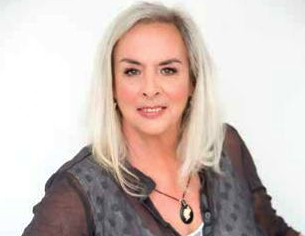By: Anne Pankhurst
A number of the community-based organisations she is involved with are also always seeking sponsorship.
Here she provides a personal perspective on many years of engaging with corporate sponsors.
Securing sponsorship for non-profit activities is becoming more challenging in the Bay of Plenty.
But it is also now more rewarding, not just monetarily, but increasingly in terms of the relationships that are developed, often over many years.
Because of the number of events and trusts I either work in or for, it has become a daily occurrence to be thinking, talking about and pursuing sponsorship.
It’s been my experience that members of the corporate sector are extremely generous with their hard-earned dollars.
But they are becoming much more discerning about where, who and why they offer their support.
It is no longer enough to just ask for “money”, give the sponsor a few tickets, and put their logo on a banner.
They now require a much closer relationship to not only you, but even more importantly, to your customer. Articulating that benefit, and aligning your values with the sponsor’s brand, are now critical.
If your story is not well thought out and articulated, and you haven’t considered how your brand aligns with the corporate, it may feel like the potential sponsor is not being generous, or that sponsorship has become harder to get.
And in the Bay it isn’t always obvious who you should approach.
Remember, in Tauranga and other cities of a similar size that some businesses are approached on nearly a daily basis, and often on the basis of a quick phone call – because “you know someone”.
And so potential sponsors may sometimes appear tight with their money.
As someone who asks a lot of businesses for sponsorship, I approach them with respect and appreciation. You cannot treat these relationships casually.
But keep in mind that it takes time to work through what the sponsors want and need, what your event or organisation want and need, and how both parties can deliver on that.
And, although money is absolutely essential, it can often be the other benefits of being aligned that are important, even though these can initially look and feel intangible.
Credibility and discipline are important. With Tarnished Frocks and Divas, for example, we have set ratios of sponsorship against ticket sales, which in our case sits at the 80/20 rule, with tickets sales being the 80 percent.
This alone adds in a discipline to remain current and relevant and therefore to have something to offer the sponsor.
We have a baseline of benefits that we offer, but for us the more important conversation is the one that asks the sponsors what they want.
This can sometimes be quite surprising, but sponsors generally want to know how they can reach our audience. Which means that your database is king – or queen.
The other discipline to consider is this. Have you got your business model right if your event or activity would not occur without sponsorship?
This is a question that needs to be answered before approaching a potential sponsor, not after.
If you get the mix right, your churn rate becomes much less. In this challenging market it is always easier to look after your existing sponsors than to spend a lot time finding new ones.
In conclusion, where would any of our sporting, cultural, and social amenities be without strong, committed sponsors?
I applaud their support because without sponsors a good number of events and organisations simply would not survive.
The contribution from corporates, companies and organisations to the community has been and continues to be huge.
Anne Pankhurst has worked at the Tauranga Chamber of Commerce for the past 19 years in an events role. She is also chair of Tarnished Frocks and Divas, with one of her responsibilities being the sponsorship portfolio.












